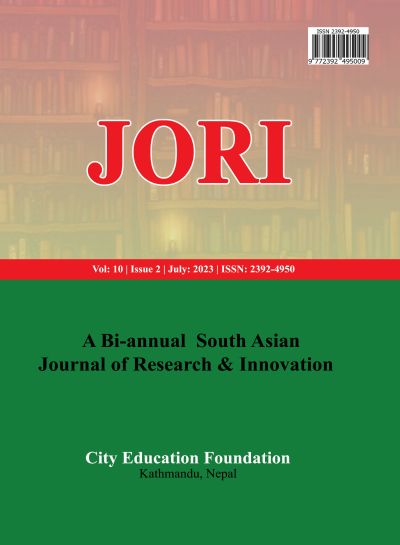Compliance with Iron and Folic Acid Supplementation among Postpartum Women in Godawari Municipality of Lalitpur, Nepal
DOI:
https://doi.org/10.3126/jori.v10i2.71841Keywords:
Iron, Folic Acid, PostpartumAbstract
Introduction: Iron deficiency anemia (IDA) is a prevalent global health issue among pregnant women in developing countries. Increased iron demands during pregnancy, often coupled with low dietary intake, contribute to a high prevalence of IDA. This can lead to adverse maternal and fetal outcomes. The World Health Organization (WHO) recommends routine iron and folic acid (IFA) supplementation for pregnant women. In Nepal, the government has implemented the National Nutritional Program, which includes the free distribution of IFA tablets to pregnant and postpartum women through health institutions.
Methods and Materials: This cross-sectional study assessed IFA compliance among postpartum women in Godawari Municipality, Lalitpur, Nepal. A semi-structured questionnaire was administered through face-to-face interviews with 250 postpartum women residing in Godawari Municipality within six months postpartum. Multistage sampling was used to select participants from five out of the 14 wards. Data were entered into EpiData software version 3.1 and analyzed using SPSS version 20.
Results: The study found that 69% of the participants reported compliance with IFA supplementation. Anemia during pregnancy was reported by 47.4% of the participants. Factors associated with IFA compliance included age, ethnicity, marital status, education level of both the woman and her husband, and the husband’s occupation. Religion, family type, and the woman’s occupation were not significantly associated with IFA compliance. Side effects were the primary reason for non-compliance with IFA supplementation.
Conclusion: The compliance rate of 69% with IFA supplementation among postpartum women in Godawari Municipality is encouraging. However, the high prevalence of anemia (47.4%) highlights the need for continued efforts to address IDA. Targeted interventions should focus on improving IFA compliance, particularly among younger women, those with lower education levels, and those whose husbands have lower education levels or occupations. Strengthening maternal health services and providing comprehensive counseling and support on IFA supplementation are crucial. Engaging families in promoting maternal health can also contribute to improved IFA compliance and reduced anemia.




